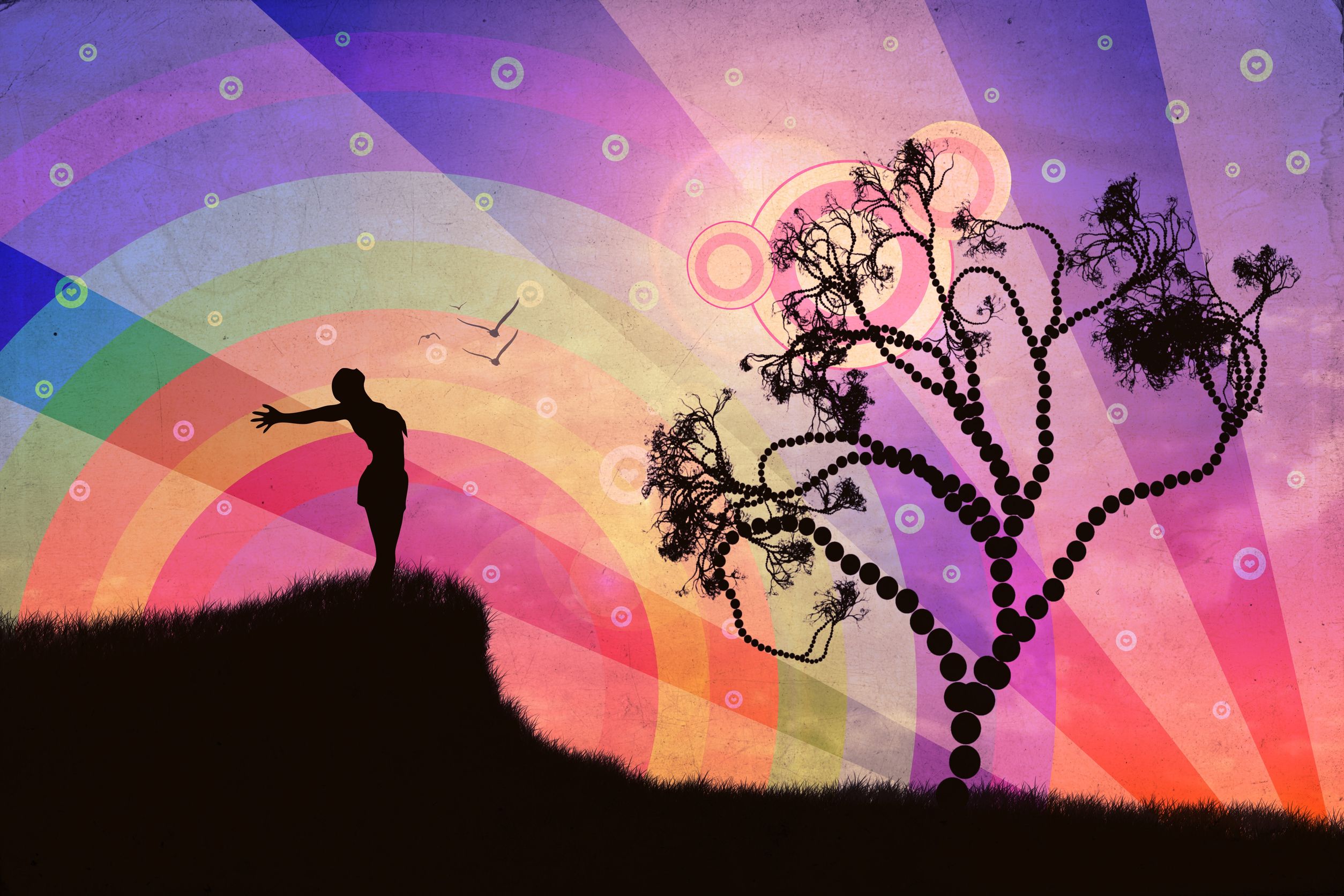Spirituality & Naturopathic Philosophy

Tolle Totum
As naturopathic physicians, we are taught and mandated to deal with the entire person – body, mind, and spirit. Our training, however, has and remains almost exclusively centered on the emotional and physical aspects of a person. There's a growing belief and knowning that spiritual crises can bring about both mental and physical imbalance. If, philosophically, we are physicians who instruct and guide patients toward your health, we have both an obligation along with a unique chance to pave the way for a meaningful integration of medicine and spirituality.
Fear of offending or likely to a new place with a patient can produce a hesitancy or reluctance to broach the subject of spirituality. But, for doctors that delve into spiritual discussions, we discover patients hungry for connection on a soul level and for assistance with how to live a more meaningful and purposeful life. Integrating spirituality right into a naturopathic practice can mean a lot of things, and doesn't need to imply talking about religion or God. While one patient may rely heavily on his/her religious faith during a health challenge, another patient may call upon spending time in nature to fill his/her spiritual coffers. “Spirituality is obtainable to all people whether we belong to any religious group.”1
There are many spiritual principles, practices, and concepts that physicians can call upon when working with patients to help the healing relationship. Meditation is a superb tool for introducing patients towards the concepts to be more present and living in as soon as. Spiritual practices of gratitude, self-acceptance, and compassion can be integrated into daily behaviors and everyday life. Discussions about letting go of ego and judgment can bring awareness and knowledge of the way we resist and reduce the chances of change. Asking questions in regards to a patient's relationships and support can reveal invaluable information about a patient's communal feeling and connectedness, or lack thereof.
Weaving these concepts into patient intakes fosters strong patient-doctor relationships and creates an atmosphere in which patients feel heard and validated. In my experience, patients find vital guidance and insight when applying spiritual principles and practices to their lives and to their own health challenges. Incorporating these practices into patient visits and into protocols and suggestions can manifest in individuals making life-changing decisions, experiencing major shifts in perspective, establishing healthier boundaries, and creating a stronger resolve for wellness and well-being.
Living in the Moment
During health challenges and stressful times, we often concentrate on the things that are wrong with our lives, those who have wronged or wounded us, and also the frustrations and challenges of our daily existence. While these things are essential to recognize, as they can be “obstacles to cure” and rationale to make significant life change, concentrating on negative aspects of our lives may also promote feelings of helplessness, hopelessness, and powerlessness. “The mind's never-ending chitchat eats away at well-being.”2
Living in the moment means being present with ourselves and quieting our mind's chatter. Our mind loves to wander, also it prefers to spend some time later on, fretting about items to come, or in yesteryear, ruminating about past conversations or experiences. Letting go of attachments, expectations, and regrets is another a part of embracing each moment and living with gratitude. “We spend our way of life searching for something we believe we do not have, something that can make us happy. The answer to the deepest happiness is based on changing our vision of where you can seek it.”3 Releasing ourselves from the preoccupation with and an attachment to our future and past selves, we exist in the now – within this moment.
Compassion, Self-Acceptance, & Self-Love
We live in a high-pressure and competitive world. We feed the critical voice within us, with thoughts of “I am not enough” and “I should be doing and accomplishing more.” This critical voice can rule our thoughts and cause us to evaluate and condemn the body and behaviors. If we are critical and judgmental of ourselves, we are critical and judgmental around the globe around us, and vice versa. And when we see our lives through the lens of “I am insufficient,” our self-esteem suffers, and our convenience of self-care is limited. I'm constantly amazed at the way a patient's reaction to the question “What do you consider and believe with regards to you?” coincides with how that patient takes take care of him/herself; whenever we don't feel worthy of love and care, we quite often respond by not loving and taking care of ourselves.
“If you doubt the damage brought on by insufficient self-love in our lives, you've simply to look around you- We poison and numb ourselves with cigarettes, tranquilizers, drugs, alcohol and unhealthy diets, and that we seek out relationships that may never work in a desperate attempt to convince ourselves of the value. No relationship on the planet could make us feel worthy when we have no idea that we are.”4
When we give ourselves permission to compassionately accept and embrace inside us our successes and failures as well as in our perfection and imperfection, we grow our capability to love and take care of ourselves. “There is something wonderfully bold and liberating about tallying to the entire imperfect and messy life.”5 Growing our sense of self-worth produces a stronger resolve for making healthier choices. This increase in self-care and self-worth translates into improved compliance and commitment to naturopathic recommendations and protocols.
Letting Go of Ego
The ego is the part of us that will get resentful, possessive, jealous, and fearful. Our ego wants desperately to safeguard us, but often achieves this in a fashion that creates defensiveness and judgment. Ego results in a thought that we need approval, that people need to feel superior, and that we need to be in charge. When we see resistance to alternation in our patients, or when we see patients hanging onto dysfunctional behaviors and relationships, we see egos that are fearful and defended.
As physicians, we inevitably work with patients which are defensive and controlling, and due to we have an opportunity to, kindly and gently, explain patterns of behavior that may be holding it well from a healthier and more fulfilling life. Talking with patients about their patterns of resistance and control could be incredibly insightful and life-changing; in my experience, patients often take a breath and nod with a sense of relief when I explain, with compassion and without judgment, a defensive or guarded behavior . When patients gain understanding of the way they react and behave, they start to be less defensive, more open to change, and more prepared to try new things.
Creating and Manifesting the Life We Want
In Chakra theory, there 2 two currents of one's that flow through our chakra system: one is an upward energy that liberates us toward a higher consciousness and growth, and also the other is really a downward energy that grounds us toward our planet where our thoughts and concepts become words and actions. There must be an account balance between these 2 currents in order for us to create the lives we want. “Only through embodiment can consciousness manifest.”6
It is a very common human experience to believe that we are not living the life i was designed to live. Most of us have caused patients who feel stuck, lack motivation, and therefore are powerless to act or make a change in their lives. An example of someone who comes with an imbalance in the chakra currents is somebody that lives entirely in his/her head and dismisses or ignores your body; they may find it difficult to make his/her thoughts and dreams a real possibility.
We see patients neglecting to do something regarding health, their finances, their personal goals, and so forth. Repetitive behaviors and limiting mindsets keep patients paralyzed with fear – fear of taking risks in their personal and/or career. Another spiritual lesson awaits us when we can begin to see the planet as filled with opportunity and abundance, and our way of life as pure potential. Participating in conversations with patients about following through, and embracing the possibilities within their lives, is where motivation and – perhaps, more importantly, inspiration – is born.
We Are One
For many, spirituality means feeling an association to something greater than ourselves. Feeling alone in the world creates isolation and fear. The straightforward fact that we're not alone in our suffering brings enormous relief to the people coping with physical and mental illnesses. Group therapy and self-help groups create communities that offer connecting, sharing, and bonding opportunities that heal.
Whether the bond would be to ourselves, nature, a residential area, a god, the universe, or something else, the bond tells us that we are part of a whole, of something greater. Thich Nhat Hanh, a Buddhist Zen master and scholar, discusses the idea of Interbeing, where many of us are part of anything else; we're “empty of 1 thing only: a separate self.”7 These concepts connect us and lift us far above our individual struggles.
Summary
Caroline Myss, an author and lecturer in neuro-scientific human consciousness, writes and speaks about how exactly spiritual crisis can be mistaken as physical or mental illness. She explains how clinical depression can be a spiritual crisis of “the soldier from the soul.”8 While depression is often given medication, the condition may benefit more from being “examined and understood like a advancement of self-realization and illumination, within the deepest sense, of the items it means to come to know one's inner self.”8 When there exists dissonance between the lives we lead and what we believe or know to become our purpose, our identity, our values, and our beliefs, we struggle, which struggle can manifest in your body. “The is the soul presented in the richest and most expressive form.”9
Treat the Whole Person, Doctor as Teacher, and Identify and Treat the Causes are part of our naturopathic doctrine. We, as naturopathic physicians, are entrusted with the proper care of the “whole patient.” Acknowledging that the care of the whole patient includes looking after our patients' sense of meaning, purpose, identity, and connectedness allows us to embrace spirituality and rehearse its principles and practices liberally.
As a naturopathic physician thinking about spirituality, I appreciate and value this quote: “Nature is a great teacher. It moves through cycles of death and rebirth without regret, without attachments, with noblesse oblige, a pure spirit regenerating itself over and over again. It beckons man to understand its simple lessons of life and truth.”10 Naturopathic philosophy is spiritual anyway; in the end, we are all part of nature, we're nature, and we heal with nature. We are one.

